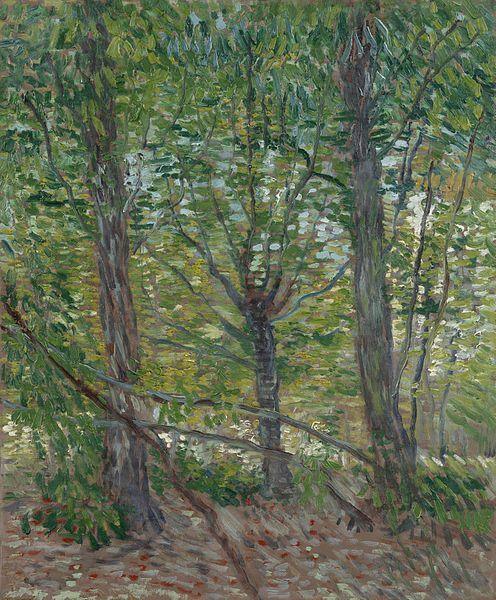Description
The painting Trees and Undergrowth by Vincent Van Gogh is a masterpiece that represents nature in its purest state. This work was created in 1887, during the artist's stay in Paris, and is one of the most representative of his artistic style.
The composition of the painting is impressive, with a large amount of detail that makes the viewer feel immersed in the landscape. Trees and undergrowth are rendered with great precision, and the use of light and shadow creates a sense of depth and movement.
Color is another outstanding aspect of this work. Van Gogh used a palette of vibrant, contrasting colors, which give the painting a sense of vitality and energy. Green and yellow tones are especially striking, creating a feeling of freshness and life.
The history of the painting is also interesting. It is known that Van Gogh was fascinated by nature, and spent long hours walking through the countryside in search of inspiration. This work was created during one of these walks, and represents the beauty and tranquility that the artist found in nature.
In addition, there are little-known aspects of this work that make it even more fascinating. For example, it is known that Van Gogh used a very particular brushstroke technique, which allowed him to create unique textures and effects in painting. It has also been speculated that the work could have a symbolic meaning, representing the struggle between nature and civilization.
In short, Trees and Undergrowth is an impressive work of art that represents the beauty and vitality of nature. Its artistic style, composition, color and history make it a unique and fascinating work, which continues to captivate viewers more than a century after its creation.

